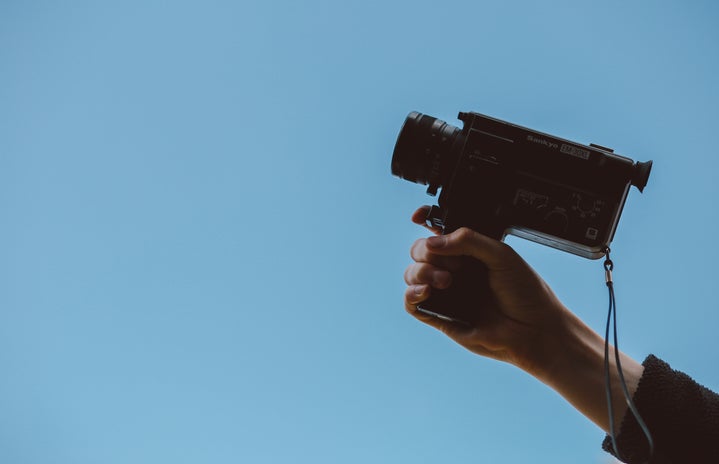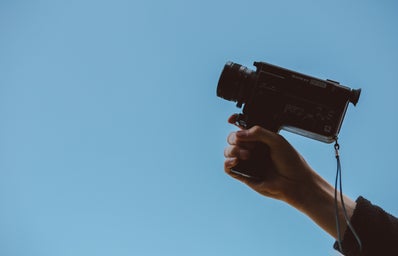I remember the first time I watched the movie “Hidden Figures,” written and directed by Theodore Melfi. Exiting the theater, I was struck by a feeling of invincibility. I had never really considered going into work related to NASA or space, and the movie hadn’t really changed that. What it had done was given me a film in which a group of women working in the STEM field were powerful and unapologetic in their views and skills. It had made me feel strangely capable as well, as if somehow they had managed to transfer some of their badassery to me. Really, what was there to stop me from doing what I wanted with the rest of my life? Regrettably, that feeling hadn’t lasted very long. Shortly after I left the theater, I was swept back into the normal swing of life, slightly underwhelming and not quite as motivational. And I also became aware of a distinct lack of strong female characters on the screen.
Seeing that movie made me realize just how much seeing a part of yourself portrayed on screen can do. If I saw a singular movie involving strong female characters and left with such feelings of strength, then did men, constantly surrounded by characters such as Thor, Captain America and other miscellaneous powerhouses, always walk around feeling on top of the world? It wasn’t just that, but they always had some form of representation in the media, some male character to look up to and model themselves after. This isn’t a very exciting story. However, I feel it does highlight the importance of women, their portrayal in the media, and how much it can affect how we view ourselves and others.
According to a Gender Bias in Advertising study, 25% of ads feature men while only 5% feature women. It was also shown that men in movies receive and speak twice as much as their female counterparts. I can say (as a self-identifying female) that although there may be pressure to not speak as much as the men surrounding us, I definitely don’t subscribe to that role. It is not necessarily because of any deep stereotypes or fear. Rather, I just love talking (a bit too much) and the fact that this isn’t often portrayed in the general media is both inaccurate and frustrating.
So why is this important? Sure, “Hidden Figures” was and is important to me, but it doesn’t apply to everyone. Regardless, studies have shown that female portrayals in movies, TV, and other media can change the way they are viewed. And more importantly, how we as women view ourselves. If I never see women in strong STEM roles, how am I to feel or know that I even have that option? As described in the 2016 press release of over 4,000 women surveyed, having strong and positive female role models can assist women in becoming more ambitious and assertive. They are also more likely to leave an abusive relationship. If characters like Katherine G. Johnson (from “Hidden Figures”) were more common, I feel like there would be more solid role models for young girls. One important distinction to notice is that ‘Hidden Figures” is a true story, which is amazing in itself. However, even fictional female characters should be written and diversified in a way that women feel accurately represented and respected.
Another problem I’ve noticed with women in media is the general sexualization that seems to be constant. Yes, many of us have boobs and a butt, but that doesn’t mean they are a substitute for our personalities and lazy writing. This applies to TV, movies, video games and other portrayals. In addition to this, the majority of female characters are presented with unrealistic body shapes, pushing possibly damaging body standards. This has been shown to begin or increase unhealthy self-comparisons in young girls to paparazzi and their movie magic looks. This can cause unhealthy eating and coping habits. I’m not saying some traditionally beautiful gal wearing skimpy clothes is never acceptable in film. However, that doesn’t mean that we don’t need a diverse and interesting cast/portrayal of women.

Really, I feel that “Hidden Figures” was so special to me because there was and is such a distinct lack of strong realistic female characters in the media I was surrounded with. Or if they were “strong” that was their only character trait. They didn’t seem affected by life struggles, another unrealistic standard. The women in “Hidden Figures” did struggle, they cried and also managed to be incredibly badass at the same time. I had largely seen women presented as one of two things. They are typically either sexualized or a rather domestic housewife. This pushes damaging stereotypes within society, both in and outside the mind of women. Although there is nothing inherently wrong with having a sexy female character in film, if that’s all that’s ever shown it can become a bit problematic. It can bring into question, is that actually all there is to women? And if it isn’t, does that make any female lacking these attributes lesser than?
I think the most frustrating part is that so many women I know are beautiful and diverse and messy and powerful. It seems only fair for this to actually be expressed in the media as well as in real life. Validate us, in honor of National Women’s Day, we most definitely deserve it.




